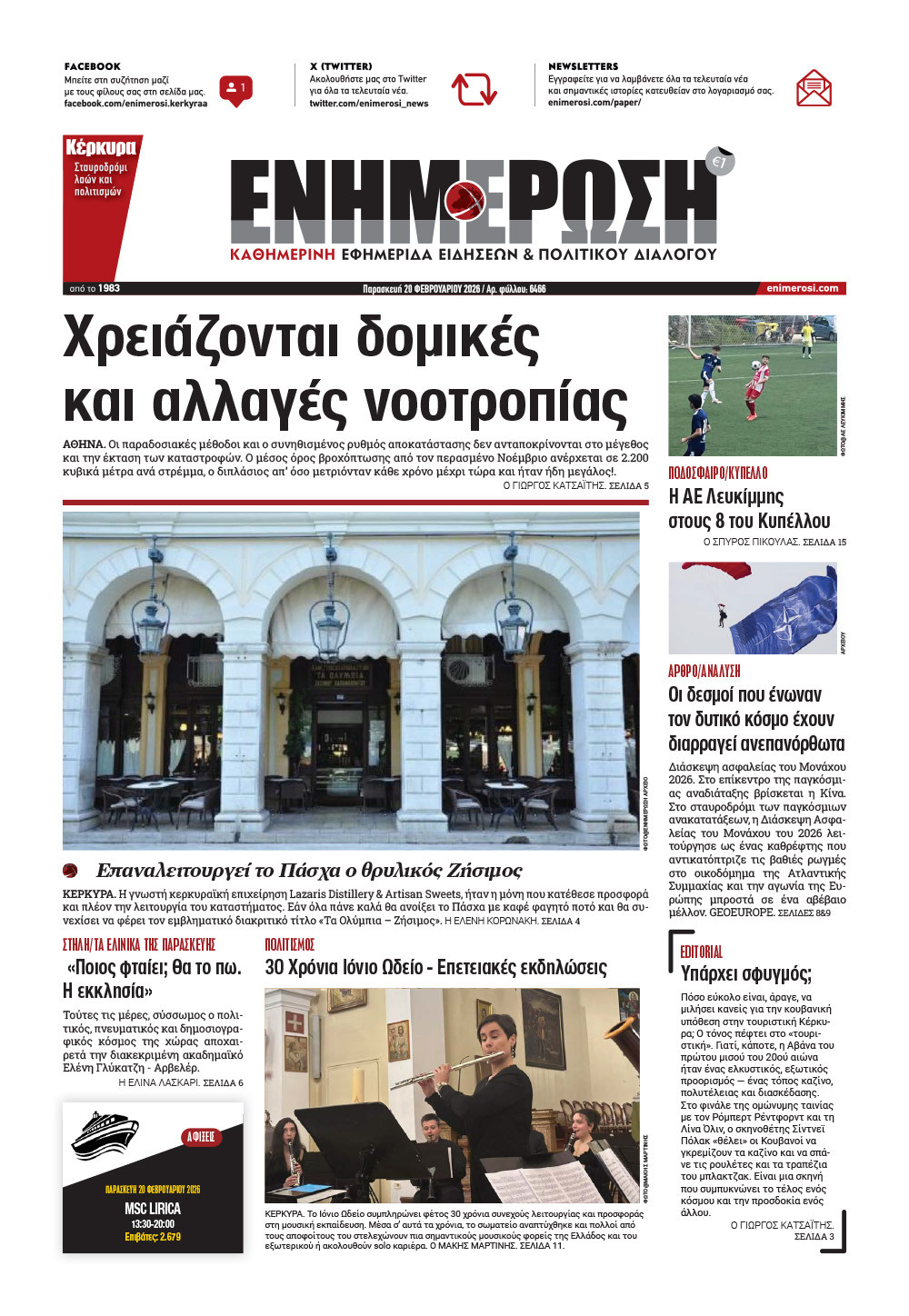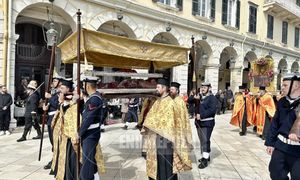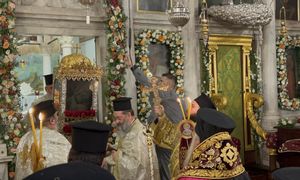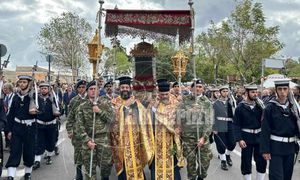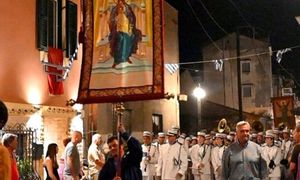This year΄s ΄First Sunday΄ procession different from other years
1636279308.jpg?crop=800,480)
procession
07 Nov 2021
/ 12:38
CORFU. The St. Spyridon procession in remembrance of the miracle he performed had no pupils taking part this year but still proceeded with great reverence.
The unique Corfu 'First Sunday' procession took place under special conditions this year due to the pandemic.
The fact that Corfu has 'turned red' on the national epidemiological map led to the local authorities' decision to limit the number of people as much as possible but without touching the religious essence of the tradition - the procession with the sacred relics of St. Spyridon in remembrance of his miraculous intervention by which, tradition says, he drove the plague off the island.
1636279656.jpg)
1636279535.jpg)
1636279538.jpg)
The procession followed the normal route but without pupils, scouts and guides taking part. The Philharmonic Bands took part with a small number of musicians and remained stationary at separate locations whilst the procession took place.
1636279486.jpg)
See more photos here
Story behind the tradition
According to the historical research done by Giorgos Zoumbos, "In 1673, less than 50 years after the epidemic of 1629, the plague hit Corfu once again, with the first cases being recorded in Garitsa. From there it spread to the whole of the town despite the measures taken by the Venetians.
We don't know how long it lasted exactly. The only thing that is known is that the epidemic ended suddenly at the end of October, with a huge number of people having lost their lives (in contrast to the plague of 1629, when only a few dozen people died). The sudden end was attributed by the ordinary people to a miraculous intervention by St. Spyridon and believers said: "For three nights there was light at the top of the bell tower of his church, in which the saint could be seen holding a cross in his hand and driving out the plague, which, looking like a ghost was trying to save itself.
A lot of people said that they could hear frightened cries from the ghost as it was driven out of the town." The Venetian administration followed the people's call and celebrate 29 October, 1673 with a procession every year on the first Sunday of November with the Saint's sacred relics in remembrance of the fact."
Anti-fascist demonstration
Following the Second World War, the religious 'First Sunday' tradition took on another significance.
Following the war, 'First Sunday' was also dedicated to the remembrance of the first anti-fascist demonstration in Greece with Corfu secondary pupils on 2 November, 1941. The demonstration was an act of protest against the Italian conquerors and the changes they had imposed on schools and the education system.
The fact that Corfu has 'turned red' on the national epidemiological map led to the local authorities' decision to limit the number of people as much as possible but without touching the religious essence of the tradition - the procession with the sacred relics of St. Spyridon in remembrance of his miraculous intervention by which, tradition says, he drove the plague off the island.
1636279656.jpg)
1636279535.jpg)
1636279538.jpg)
The procession followed the normal route but without pupils, scouts and guides taking part. The Philharmonic Bands took part with a small number of musicians and remained stationary at separate locations whilst the procession took place.
1636279486.jpg)
See more photos here
Story behind the tradition
According to the historical research done by Giorgos Zoumbos, "In 1673, less than 50 years after the epidemic of 1629, the plague hit Corfu once again, with the first cases being recorded in Garitsa. From there it spread to the whole of the town despite the measures taken by the Venetians.
We don't know how long it lasted exactly. The only thing that is known is that the epidemic ended suddenly at the end of October, with a huge number of people having lost their lives (in contrast to the plague of 1629, when only a few dozen people died). The sudden end was attributed by the ordinary people to a miraculous intervention by St. Spyridon and believers said: "For three nights there was light at the top of the bell tower of his church, in which the saint could be seen holding a cross in his hand and driving out the plague, which, looking like a ghost was trying to save itself.
A lot of people said that they could hear frightened cries from the ghost as it was driven out of the town." The Venetian administration followed the people's call and celebrate 29 October, 1673 with a procession every year on the first Sunday of November with the Saint's sacred relics in remembrance of the fact."
Anti-fascist demonstration
Following the Second World War, the religious 'First Sunday' tradition took on another significance.
Following the war, 'First Sunday' was also dedicated to the remembrance of the first anti-fascist demonstration in Greece with Corfu secondary pupils on 2 November, 1941. The demonstration was an act of protest against the Italian conquerors and the changes they had imposed on schools and the education system.



